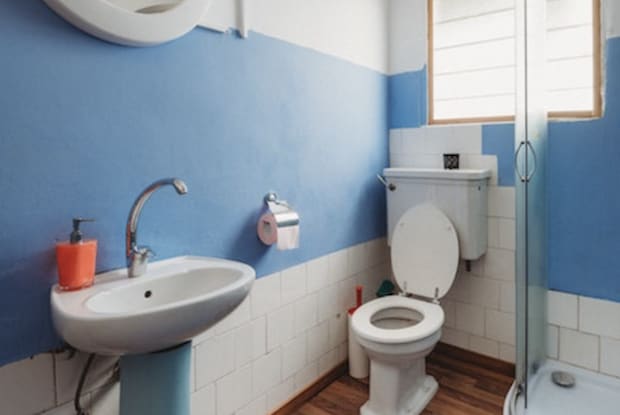Table of Contents
I. Long-Term Effects of Bladder Problems
Long-Term Effects of Bladder Problems
The bladder is essential in ridding the body of waste products. When the bladder's muscular sac becomes full, it sends signals to the brain to release the urine through the urethra. In a normally functioning bladder, the internal sphincter (a muscular valve) prevents urine from leaking out of the bladder. Usually, you have time to get to the bathroom when you feel that your bladder is full, but many problems can arise with this process.
For several reasons, the complicated urinary tract process may be disrupted and cause bladder issues. These issues may cause leakage, bladder infections, frequent urination, and urinary tract infections. Women are more likely to experience bladder problems, but prostate-related bladder problems frequently occur in men. If you have an overactive bladder or benign prostatic hyperplasia, you can experience many long-term effects, including interstitial cystitis. This chronic health issue can greatly impact your everyday life, and treatment is necessary. [1]
Common symptoms of bladder problems can include:
- Pain or burning sensation during urination
- Persistent and strong urge to urinate
- Strong-smelling urine
- Cloudy urine
- Bladder leakage
- Pressure or pain in the lower abdomen
- Urinating more than eight times a day [2]
There are many medications and therapies available to help with symptoms of bladder problems, including Toviaz (fesoterodine fumarate), Myrbetriq (mirabegron), Vesicare (solifenacin), Avodart (dutasteride), and Elmiron (pentosan polysulfate sodium). Medications like these can improve your quality of life and reduce your urge to run to the bathroom. Bladder problems can occur for several reasons, but some factors increase your risk. Read on to learn more about risk factors for bladder problems. The foods and liquids you eat and drink can affect your bladder habits. You may begin to realize you are having bladder issues when you cannot drink as much as you used to and notice you have to use the bathroom more often. Of course, drinking more fluids makes you urinate more, but certain substances can irritate the bladder and increase the risk of bladder problems. Common bladder irritants include: You may not have to stop eating and drinking all these things, but you may want to cut one out at a time to see if you notice a change in your bladder habits. If you want to improve your bladder habits, you can drink fewer fluids at night and skip alcoholic and caffeinated beverages. [3] Every man is at risk for prostate problems. The prostate gland is located under the bladder and is responsible for making fluid in semen and carrying sperm from the testicles when a man ejaculate. The prostate grows during puberty and in early adulthood, but it continues growing slowly over time. As a man ages, this prostate enlargement may cause benign prostatic hyperplasia (BPH). BPH is more common in men over 50 years old. Bladder problems occur with this condition because the tube that transports urine from the bladder to the penis goes through the prostate's middle. The bigger the prostate gets, the more it blocks the flow of urine. Doctors do not know the exact cause of BPH, but it may be due to changing sex hormones as men age. Other lifestyle factors like obesity and family history also contribute to BPH. You may be prescribed Toviaz (fesoterodine fumarate) or Avodart (dutasteride) to treat this common issue. Symptoms of BPH may include: When a woman becomes pregnant, her body is flooded with hormones, which may affect the bladder's state. As the baby grows inside a woman, the baby can push down on internal organs, especially the bladder. You may experience urinary incontinence, which involves being unable to control your urine flow and lead to leakages. Stress incontinence is more common in women, and they may leak urine when they cough, laugh, or do any physical activity. Your risk of bladder problems after childbirth is increased depending on the type of delivery and number of children you have. Women who have a vaginal delivery or C-section are much more likely to have bladder issues than women who never give birth. The following factors can cause bladder control loss after having a baby: Pelvic organ prolapse: Prolapse occurs when the bladder weakens and slips out of position, causing urinary problems. Injury during delivery: Tools used during birth, like forceps, can injure the pelvic floor muscles and anal sphincter muscles. Prolonged pushing: If a woman has vaginal childbirth, they may have to push for hours, which increases the risk of injury to the pelvic nerves. [5] Childbirth greatly increases the risk of bladder problems, but it may worsen or develop for the first time once a woman hits menopause. Menopause signifies the end of a woman's menstruation and child-bearing abilities. The female body relies on estrogen production for pregnancy and the menstrual cycle, so when that hormone production stops, many changes can occur in the body. [6] Menopause is diagnosed when a woman has gone 12 full months without a menstrual period. Menopause can occur in a woman’s late 30s or 40s, but the average age is 51 in the United States. [7] Menopause symptoms can include hot flashes, night sweats, and mood changes. Bladder changes are also quite common with the onset of menopause. When the body is lacking estrogen, many bladder changes can occur. Most typically, your vaginal tissues become less elastic, and the pelvic floor weakens. If the pelvic floor is weak, then the urethra and bladder cannot be supported, leading to leakage and stress incontinence. Your doctor may recommend Kegel exercises to strengthen the pelvic floor. [6] Neurological Diseases: If you suffer from neurological disorders, you may experience bladder issues. If you suffer from a stroke, your brain's nerves may be damaged, disrupting the signaling from the bladder to the brain. When the brain cannot determine the signal of a full bladder, incontinence may occur. [6] Diabetes: Many sexual and urological problems may occur if you have diabetes. Diabetes occurs when the body cannot use insulin properly, leading to spikes in blood sugar. If the body experiences dips and spikes of blood pressure for long periods, damage to blood vessels and nerves may occur. This damage may affect the signaling of the bladder to the brain, leading to urinary problems. [8] Cancer Treatment: If you are undergoing radiation treatments for cancer, you are at an increased chance of developing urinary problems. Undergoing radiation to the pelvis, reproductive organs, bladder, and colon can irritate the urinary tract and bladder. They may start as soon as one week after beginning radiation therapy but usually go away several weeks after your treatment ends. [9] The content in this article is intended for informational purposes only. This website does not provide medical advice. In all circumstances, you should always seek the advice of your physician and/or other qualified health professionals(s) for drug, medical condition, or treatment advice. The content provided on this website is not a substitute for professional medical advice, diagnosis, or treatment.
Diet
Prostate Problems
Pregnancy

Menopause

Pre-Existing Conditions
